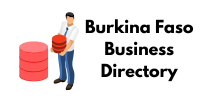Reaching out to C-level executives—CEOs, CFOs, CIOs, CMOs—is an essential part of many B2B sales and marketing strategies. However, working with C-level executive contact lists presents unique challenges that can significantly impact your outreach success. These challenges often stem from data quality issues, personalization demands, and the high expectations of senior decision-makers. Understanding these hurdles is the first step toward optimizing your approach.
1. Data Accuracy and List Quality
One of the biggest issues with C-level lists is inaccurate or outdated information. Executives frequently change roles, retire, or move between companies, making it easy for data to become stale. If you’re relying on purchased or c level executive list third-party lists, chances are a significant portion may include incorrect job titles, invalid email addresses, or outdated company affiliations.
Even more problematic, low-quality lists can lead to high bounce rates, spam flagging, or damage to your domain reputation. To mitigate these risks, regularly verify and clean your data using tools like ZeroBounce, NeverBounce, or Hunter.io, and prioritize providers with real-time verification and high data hygiene standards.
2. Reaching and Engaging Busy Executives
C-level executives are not only hard to reach—they’re also hard to impress. These decision-makers receive hundreds of emails, calls, and messages weekly. Generic messaging or irrelevant offers are dismissed instantly, meaning even a valid list won’t convert without a strong, relevant message. The real challenge is crafting compelling, personalized outreach forecasting revenue from b2b email campaigns that speaks directly to their role, industry, and pain points.
To overcome this, marketers must leverage enriched data and firmographic insights to create tailored messaging. Mentioning a recent company milestone, relevant market trend, or competitor move can business to consumer reviews help grab attention. Executives are more likely to respond when the outreach shows genuine research, business relevance, and clear value.
3. Legal Compliance and Ethical Use
Lastly, working with C-level lists involves navigating data privacy regulations like GDPR, CAN-SPAM, and CCPA. Sending unsolicited emails to executives in regulated regions without proper consent can expose your company to legal risks. B2B marketers must ensure that their contact sources are compliant, opt-out links are included, and that consent mechanisms are documented.
Investing in permission-based, opt-in lists and using compliant platforms for storage and outreach can reduce risk. It’s also important to have a clear privacy policy and to respect unsubscribes and data deletion requests.

